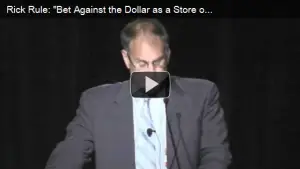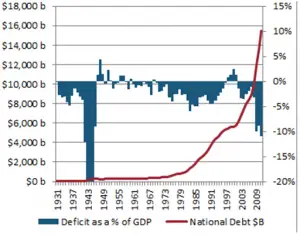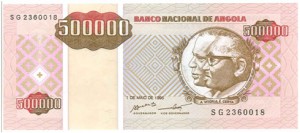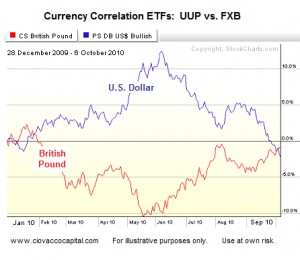In this excerpt from the Casey Summit When Money Dies, seasoned resource investor/broker Rick Rule discusses risk management and explains why the greatest risk you face as an investor is located to the left of your right ear and to the right of your left ear. Listen to Rick's complete summit speech – plus those of nearly 30 other renowned financial experts – from the comfort of your home. More than 20 hours of audio recordings on CD or MP3, including the experts’ top stock picks. Learn more. … [Read more...]
Michael Maloney: “We pay tax for the privilege to have currency”
In this video excerpt from the Casey Summit When Money Dies, Rich Dad advisor Mike Maloney explains how currency is created, "fractional reserve banking," and why our banking system is a pyramid scam of epic proportions. Listen to Mike's complete summit speech – plus those of nearly 30 other renowned financial experts – from the comfort of your home. More than 20 hours of audio recordings on CD or MP3, including the experts’ top stock picks. Learn more. … [Read more...]
Is the US Monetary System on the Verge of Collapse?
By David Galland, Casey Research Tune into CNBC or click onto any of the dozens of mainstream financial news sites, and you’ll find an endless array of opinions on the latest wiggle in equity, bond and commodities markets. As often as not, you'll find those opinions nestled side by side with authoritative analysis on the outlook for the economy, complete with the author’s carefully studied judgment on the best way forward. Lost in all the noise, however, is any recognition that the US monetary system – and by extension, that of much of the developed world – may very well be on the verge of collapse. Falling back on metaphor, while the world’s many financial experts and economists sit … [Read more...]
Currency Strength Can Sap Returns
The following article by Lynn Carpenter shows an interesting correlation between currency appreciation (or depreciation) and stock market returns. London is a money town. It has been the center of the whole Western world’s currency transactions for three centuries. Until 1945, the British pound sterling was the world’s primary reserve currency. The pound is less popular than the dollar or euro now. But whatever currency is king, London is likely to bank it, trade it and exchange it. London bankers and brokers were old in the business when the New York Stock Exchange was born under a buttonwood tree on Wall Street. London bankers and fund managers were master investors when U.S. stock … [Read more...]
A Thousand Pictures Is Worth One Word
By Jeff Clark, BIG GOLD In spite of constant headlines about debts and deficits, most Americans don’t really believe the U.S. dollar will collapse. From knowledgeable investors who study the markets to those seemingly too busy to worry about such things, most dismiss the idea of the dollar actually going to zero. History has a message for us: No fiat currency has lasted forever. Eventually, they all fail. BMG BullionBars recently published a poster featuring pictures of numerous currencies that have gone bust. Some got there quickly, while others took a century or more. Regardless of how long it took, though, the seductive temptations allowed under a fiat monetary system eventually … [Read more...]
Pressures Mount on Bank of England (BOE) to Devalue Pound
October 7, 2010 By Chris Ciovacco The Bank of England (BOE) is due to make a statement today at noon in London (7:00 a.m. ET U.S.). The BOE’s actions in the next 45 days may be important to investors in the U.S. and global commodity markets. All things being equal, a weak U.S. dollar tends to provide favorable headwinds to both U.S. stocks and commodities, such as oil (USL), copper (JJC), gold (GLD), and silver (SLV). With the BOE facing more bad news on the housing front today, political pressures to join the money-printing parties in the United States and Japan are mounting. As shown below, the U.S. Dollar (UUP) and British Pound (FXB) tend to be negatively correlated. Should the … [Read more...]
How You Can Help Take Money Creation Out of the Hands of the Government
Updated February 2014 We all whine and complain about it but usually there isn't much we can do about inflation. About our only choice is to vote with our feet, we can move our funds from one doomed currency to another. This is what the Forex industry is all about. The only other alternative to fiat currency is hard assets like gold. As I've said many times, the value of our money is based on the supply and demand fundamentals. Right now the demand for U.S. dollars is falling and the supply is rising because the government has the ability to create them out of "thin air". Based on basic Economics 101 this means that the value of the U.S. Dollar will continue to fall as long as the … [Read more...]
Euro Area Inflation Estimated at 4.0%
At 4% Euro Area inflation is very similar to the U.S. Inflation rate. On June 30, 2008 the Eurozone released what they call a "Flash" estimate of their inflation rate for the month of June. It is provisional and could be modified before the final release. But they claim it is 95% accurate. Calculating Inflation in the EuroZone is more complex than for a single country. Their individual country inflation calculations are called HICPs (Harmonised Indices of Consumer Prices). Current Euro Area Inflation Chart (1 Yr) %CODE3% Chart courtesy of www.rivaluta.it While the combined inflation rate is called "The Monetary Union Index of Consumer Prices" (MUICP) which … [Read more...]
How does the “Falling Dollar” and the exchange rate affect Inflation?
With all the recent talk about the "falling dollar" will that affect the inflation rate? Let's start with the basics. 1) Price inflation is primarily caused by monetary inflation. In other words as the money supply increases things cost more. See What is Inflation? for a full explanation. 2) The government controls the money supply to a certain extent through tightening or loosening credit. 3) The economy is extremely complex and many other factors come into play. Such as international exchange and the supply and demand for goods and services. At first blush it might appear that the falling dollar would cause deflation because the dollar is going down. But if the dollar is … [Read more...]





